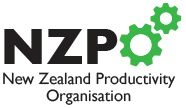
2026 off to a strong start for manufacturers
From February issue of NZ Manufacturer magazine By Hon Chris Penk, Minister for Small Business and Manufacturing As I kick off my first manufacturing column of 2026, I want to pass on my best wishes to manufacturers across the country as you return from a well earned summer break. I […]

Strengthen worker training and safety
WorkSafe’s health and safety inspectors have been carrying out proactive assessments in the wood product manufacturing sector, and early findings show there are clear opportunities for businesses to strengthen worker training and improve the safe use of machinery. Manufacturing continues to be one of WorkSafe’s highest harm sectors. It accounts […]

XPO Exhibitions to launch new trade fair
From February issue of NZ Manufacturer magazine XPO Exhibitions is partnering with Hannover Fairs Australia to launch Logistics Automation New Zealand, powered by CeMAT. This will be held from 10-11 November at the Auckland Showgrounds. The trade fair will bring together world-leading logistics, automation, robotics, intralogistics, warehousing, and supply chain […]

New Zealand Productivity Organisation wants to hear from you
www.nzproductivityorganisation.co.nz www.nzmanufacturer.co.nz/nzproductivityorganisation The New Zealand Productivity Organisation (NZPO) invites all businesses throughout the country to share their views on Productivity […]

The Learning Wave Free 90-minute taster: Accelerate team cohesion and performance in times of change
What happens when frontline teams are truly connected to each other and the business? You see fewer handovers going wrong, safer decisions on the floor, better problem-solving, issues owned and closed out properly, and people who actually speak up when something’s not right. This complimentary 90-minute taster gives manufacturing leaders […]

Manufacturing starts year by shifting up a gear
Hon Chris Penk New data showing New Zealand manufacturing is experiencing its highest level of activity since December 2021 signals a strong start to the year, Small Business and Manufacturing Minister Chris Penk says. The latest BNZ – BusinessNZ Performance of Manufacturing Index (PMI) shows the seasonally adjusted PMI for December has risen by […]

How CTEM, AI, and access control redefine OT security in 2026
By Carlos Buenano, Field CTO for OT, Armis As we step into 2026, AI-driven adversaries, supply chain fragility, and relentless digitisation are forcing Operational Technology (OT) security to mature into a force to be reckoned with. Here’s what 2026 looks like: AI-Powered adversaries demand autonomous defence AI is no longer […]

Digital transformation
From February 2026 issue, NZ Manufacturer www.nzmanufacturer.co.nz By Frank Phillips, Director, Fulcrum New Zealand Ltd Automation in manufacturing is a competitive imperative. It’s getting easier and cheaper to do, and able to be applied in situations previously unsuitable. Knowing where to start, identifying the right process to automate, detailing solid […]

The Year in Review – Business Exit Landscape
Mike Warmington, Platform 1 This year has been marked by fluctuations in the business exit landscape. The first quarter saw lots of activity and some deal flow. The middle two quarters saw business owners contemplating transitioning out, more likely to hold off as they endured a tougher sales environment […]

Reflecting on 2025: Circularity, Sustainability and Transformation for Steel Manufacturing
Troy Coyle, CEO, HERA As 2025 draws to a close, it’s clear this has been a year of transformation and momentum for Aotearoa New Zealand’s steel manufacturing industry and for HERA. The national conversation around sustainability and circular design has matured significantly, with steel once again proving itself to be […]

2026, moving forward together: Competenz deepens support for learners and employers
By Toni Christie: Competenz General Manager – Employer and Learner Experience With apprentices and employers across the country navigating an evolving sector, Competenz focused on stability, support and momentum — strengthening learner pathways and employer capability ahead of the 2026 shift to Industry Skills Boards. More than 7,000 apprentices and […]

What 2025 taught us about sustainability and resilience
By Barbara Nebel, CEO, thinkstep-anz In 2025 we saw something important: progress on sustainability continued, even as regulations shifted and economic conditions became challenging. For many organisations, sustainability has become central to resilience, competitiveness and long-term planning. Rather than slowing down, they took more confident steps to manage risk […]

Apex Valves: From garage to global
From humble beginnings in a Titirangi garage, Apex Valves has grown into one of New Zealand’s standout manufacturing and export success stories. Built on precision engineering and commitment to quality, the company now supplies high performance water control valves to homes and farms around the globe. The EMA’s Nicholas Russell sat down with Apex General Manager Mark Gracie to talk about the competitive edge that comes from manufacturing excellence backed by decades of innovation. Q: How did Apex Valves’ journey begin, and what triggered your move into larger-scale manufacturing? Mark Gracie: Apex was founded in 1982 by my father, Alan Gracie, in a Titirangi garage. At that time, New Zealand had almost no domestic manufacturers of valves for home hot-water systems. If you needed one, you imported it, often at high cost and with long delays. That gap in the market sparked the idea: could a Kiwi manufacturer produce a reliable, locally made alternative? From that question, Apex grew steadily. We expanded from residential hot-water valves into broader plumbing fittings, and then into agriculture when a rural-supply customer asked if we could engineer a heavy-duty trough valve that would not break under high water pressure or daily farm use. That product became our breakout success. More than 40 years later, that trough valve remains one of our biggest sellers, used on farms across New Zealand and in multiple export markets. As demand grew, we shifted into proper manufacturing facilities, but over time those sites became limiting. Our last location served us for 28 years, but we were spread across four buildings, with production split into disconnected pockets. For a company that prides itself on quality and efficiency, the layout created unnecessary complications and increasing constraints. Q: What has changed now, after the move to your new facility at Rosebank Road? […]










